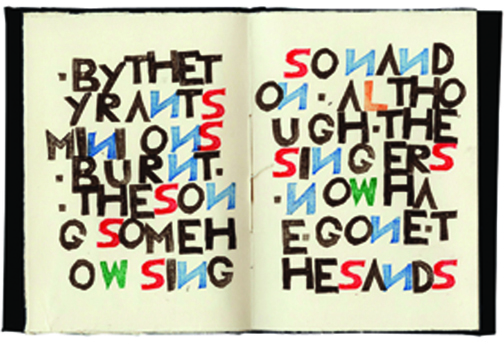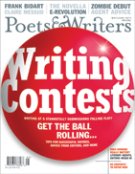On March 5, 2007, during the Iraq War, a car bomb was detonated in Baghdad on al-Mutanabbi Street—a famous thoroughfare lined with bookstores, cafés, and outdoor bookstalls. Thirty people were killed, a hundred more were wounded, and much of the street (named for the tenth-century Arab poet Al-Mutanabbi) was destroyed. In response, San Francisco poet and bookstore owner Beau Beausoleil established the Al-Mutanabbi Street Coalition, for which he invited writers, bookmakers, and letterpress artists to create broadsides in celebration of al-Mutanabbi Street and Baghdad’s literary community. Within two years of the bombing, Beausoleil had collected 130 broadsides, one for each person wounded or killed during the bombing. In 2010 he expanded the project, asking book artists to “reassemble” the inventory lost on al-Mutanabbi Street by creating artist books—pieces that would represent both the strength and fragility of books as objects, and the resilience of the ideas they contain. Since then, the Al-Mutanabbi Street Inventory Project has grown to include 261 books created by artists from around the world. One complete set will be donated to the Iraq National Library in Baghdad, and two additional sets will tour the United States and Canada over the next several years. This past March, a group of the books was selected for exhibition by the San Francisco Center for the Book (SFCB), an early supporter of Beausoleil’s project.

The exhibit, Al-Mutanabbi Street Starts Here, featuring fifty-five artist books from the inventory, including “The Song Lives On” by John Bently (above), will be on display at the center until May 11. “This project is both a lament and a commemoration of the singular power of words,” Beausoleil states in a project description on the SFCB website. “We hope that these books will make visible the literary bridge that connects us, made of words and images that move back and forth between the readers in Iraq and ourselves.”









